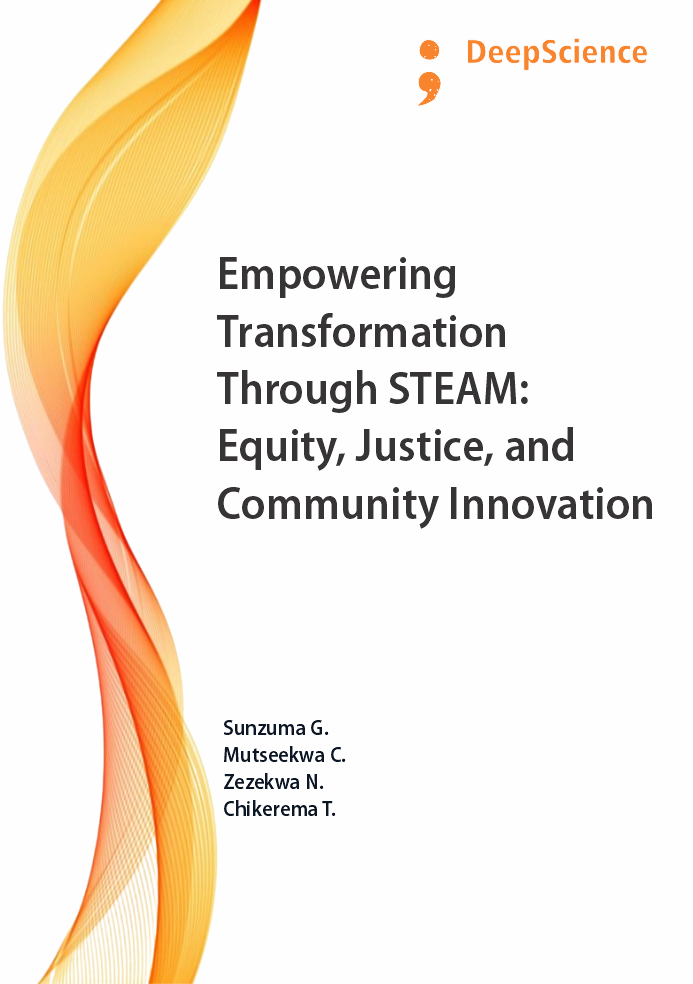Empowering Transformation Through STEAM: Equity, Justice, and Community Innovation
Keywords:
STEAM Education, Digital Literacy, Critical Pedagogy, Equity in Education, Social Justice, Culturally Responsive Pedagogy, Indigenous Knowledge SystemsSynopsis
The development of STEAM education through Science, Technology Engineering, Arts, and Mathematics must move beyond traditional learning to embrace social inclusion and empowerment. This is a challenging task for society due to technological, environmental and technological challenges. The book, entitled Empowering Change Through STEAM: Equity, Justice, and Community Innovation, builds upon the principles of participatory and culturally based education, in which students can use transformative learning practices to break down systemic inequalities and create opportunities for action.
STEAM education should not be solely informative, as per the principles of this book. Educators must possess the ability to question, co-create, and lead meaningful change within their own communities, in addition to skills. Each chapter contains an essential component to this evolving perspective, integrating theory, practice, and lived experiences from the margins to the mainstream.
Chapter 1: Technology and Digital Literacy
In this chapter, we explore how technology can serve as an effective balance when used with intention and equity. Digital literacy is a protected right that includes programs that empower underprivileged groups with tools, training and platforms to access economic opportunities as well as civic engagement and creative expression. By examining case studies, it showcases how communities are reclaiming digital spaces to construct their own futures.
In STEAM: Teaching for Liberation, Chapter 2 explores Critical Pedagogy. The chapter explores the fundamental role of critical pedagogy in STEAM education. By drawing on Paulo Freire and other scholars in recent years, this chapter outlines how educators can prioritize dialogue, cultural relevance, and critical thinking to counter oppressive systems. It explores a structure of free education, where students are partners in producing knowledge and actively participate in shaping their world./
The third chapter discusses the challenges of STEAM participation and addressing systemic inequalities. Many still struggle to access STEAM education due to economic hardship, racial discrimination, gender bias, and geographic isolation. This chapter addresses the structural factors that contribute to inequality in STEAM pathways and highlights these systemic barriers. Additionally, it demonstrates measures and policy adjustments designed to enhance access and representation.
In Chapter 4, STEM Education and Environmental Justice is the main topic of discussion. The chapter focuses on the integration of science and environmental justice in STEAM education. The research investigates how climate change, pollution, and resource extraction disproportionately impact underprivileged groups and how education can empower these communities to advocate for sustainable development. Additionally, Youth-led projects and place-based learning that link ecological awareness with activism and innovation are highlighted through real-life examples.
Chapter 5 highlights the role of STEAM in community-driven initiatives, highlighting how participants can make significant contributions. In the last chapter, the book focuses on examples of education created by communities rather than for individuals. Through the application of participatory action research and co-design principles, this chapter presents case studies in which communities are instrumental in developing STEAM programs using Indigenous knowledge, local needs, and cultural resilience. The significance of shared ownership and iterative learning lies in the enhancement of collective agency and long-term capacity.












